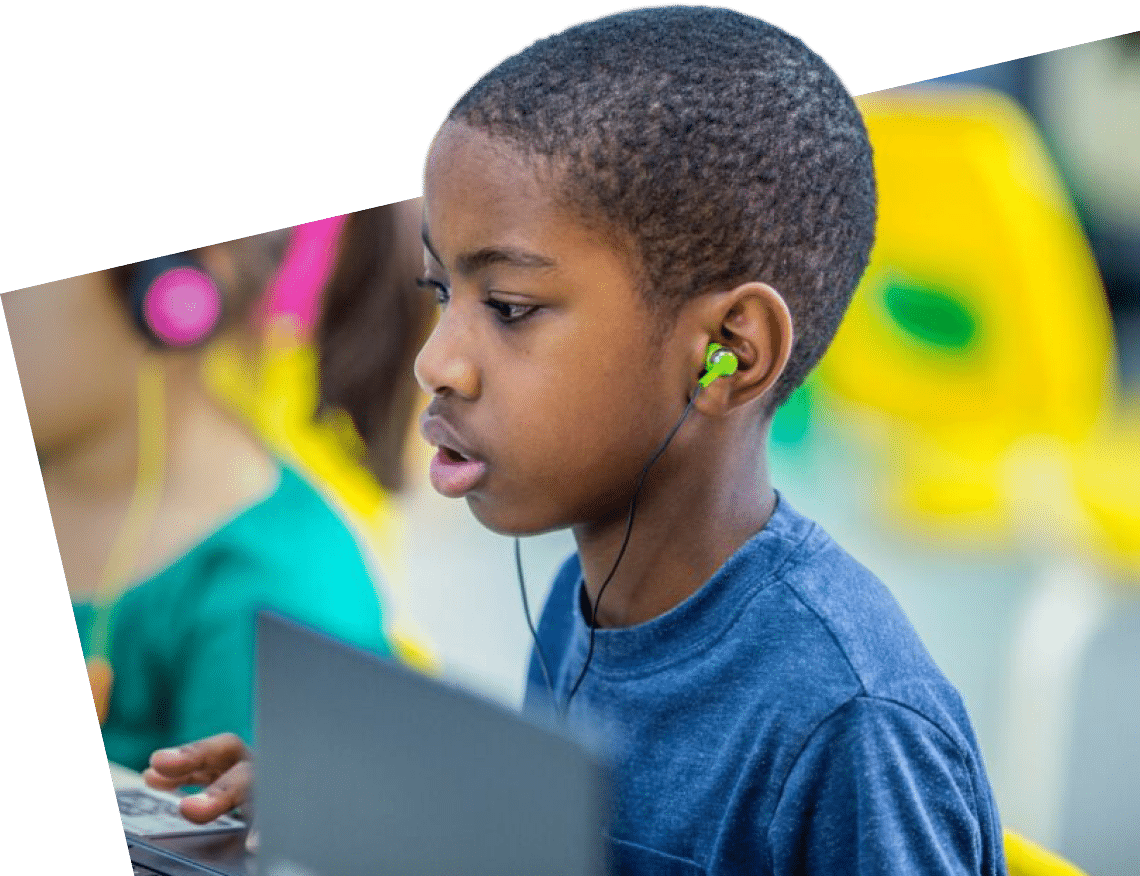5 September 2025
Easing the transition back to routine

Written by Natalie Hollins,
Parent Support Associate
Supporting your child’s return to structure, confidence, and online learning with Tute
As summer gently fades and a new academic year begins to take shape, families everywhere find themselves navigating change. For some, the return to term-time brings a welcome return to structure and purpose. For others, it can stir up anxiety, uncertainty, and resistance, not just for young people, but for their parents and carers too.
At Tute, we understand that our students’ learning journeys don’t always follow traditional paths. Many of the children and young people we support have experienced disrupted education, changes in setting, or difficulties with mainstream school environments. For them, and for you, returning to routine is more than just picking up where things left off.
It’s a re-entry. A reset. A chance to re-establish connection, confidence, and rhythm.
Whether your child accesses Tute lessons from home, school, or a combination of both, here’s how you can support a smoother, calmer transition back into online learning this term.
The Power of predictability: rebuilding daily structure
In the relaxed freedom of the summer holidays, routines often shift. Bedtimes get later, mornings stretch out, and screen use blurs between entertainment and habit. This flexibility is part of what makes summer so valuable, but it can also make the return to structured learning feel abrupt.
Rather than snapping back into routine all at once, try gradually reintroducing structure in small, achievable steps. Bring bedtime and wake-up times closer to term-time schedules over the course of a week. Revisit your child’s learning space, clear it out, refresh supplies, and set it up again with intention.
If your child accesses Tute lessons from home, helping them distinguish between, “learning time” and “home time” is key. This might be as simple as creating a designated learning area, even if it’s just a specific seat at the table or using a routine checklist to mark the start and end of each school day. Remember: routines aren’t about rigidity. They’re about creating security, predictability, and readiness. When students know what’s coming next, they’re more likely to feel settled and able to engage.
It’s not just logins – it’s mindset
Often, back-to-school advice focuses on organisation: uniforms, timetables, planners. And while those things matter, there’s another layer that’s just as important, especially in an online setting.
That layer is mindset.
For students who’ve previously struggled with education, perhaps due to anxiety, special educational needs, or other barriers, returning to lessons can feel emotionally complex. The learning may be online, but the emotions are very real.
Your child may not articulate their worries; however, they might show them through changes in behaviour, sleep, mood, or resistance to logging in. As parents and carers, we can help by creating space for quiet conversations, validating emotions, and showing that there’s no shame in feeling nervous or unsure.
Try asking gentle, open questions:
- “How are you feeling about starting Tute lessons again?”
- “Is there anything you’re hoping will be different this term?”
- “What would help make your first week feel easier?”
And perhaps most importantly: let them know that they don’t have to get everything right straight away. The first login is already a win. focus on what they’re enjoying right now and what they’re looking forward to.
Fostering independence in online learning
Online education offers a unique opportunity for students to take more ownership of their learning experience. However, independence doesn’t happen overnight, it’s built gradually, with the right support and encouragement.
Consider what small responsibilities your child could begin to take on this term:
- Checking their own Tute timetable each morning
- Preparing their space with headphones, login details, and a notebook
- Tracking their own progress using a checklist or calendar
These acts, while small, are powerful. They help young people feel capable and involved in their own success. And for students who may have felt out of control in previous school settings, this sense of agency can be transformative.
Still, it’s okay if your child needs support to build these habits. Independence doesn’t mean doing it all alone, it means learning to trust themselves, with you by their side.
Progress over perfection: setting intentions that empower
At the start of a new term, it can be tempting to focus on outcomes, improved grades, full attendance, perfect engagement. But for many Tute students, especially those re-engaging after absence or difficulty, these goals can feel overwhelming.
Instead, we encourage families to think in terms of progress. What would meaningful growth look like for your child?
It might be:
- Logging in without prompting three days a week
- Participating in one lesson chat each day
- Asking a teacher for help when something feels unclear
- Reflecting on a lesson with you afterward
These small intentions can be celebrated and built upon. Over time, they help rebuild confidence and motivation and show that learning is about more than ticking boxes. It’s about movement, even when it’s slow.
You could even make this a family ritual: each person sets one small, achievable goal for the term, and checks in weekly. Not as a pressure point, but as a shared commitment to growth.
Supporting the whole learner
Tute students come from diverse backgrounds and access our lessons for many different reasons: mental health support, SEND needs, attendance challenges, school refusers, or a preference for a different kind of learning environment.
What unites them is that they’re learners and that they deserve support not just academically, but emotionally and practically too.
As a parent or carer, your role is already central. You are the anchor. You are the reassurance on a hard day, the cheerleader after a good one, and the safe space your child returns to. That support makes more difference than you know.
Therefore, if things feel messy, slow, or imperfect at first, take a breath. You’re doing it right.
Final thought
Returning to routine is never just about getting back to work. It’s about restoring balance. Reconnecting with learning. Rebuilding confidence.
At Tute, we see every term as a new opportunity – not a test. And we see every parent and carer as a vital part of that journey.
So, as your child begins this new chapter, go gently. Celebrate the small wins. Honour the effort it takes just to log in, focus, try again. And remind yourself (often) that what you’re doing matters.
You’re helping your child find their way back, not just to routine, but to growth, belonging, and belief in themselves.
